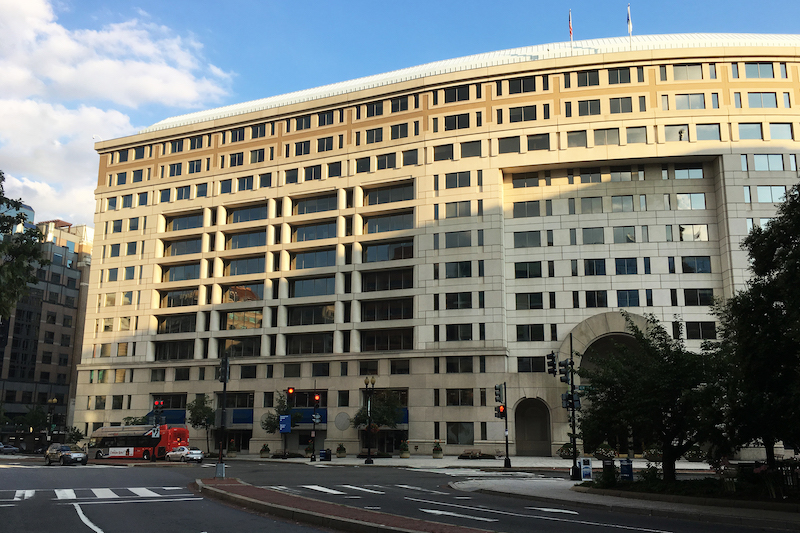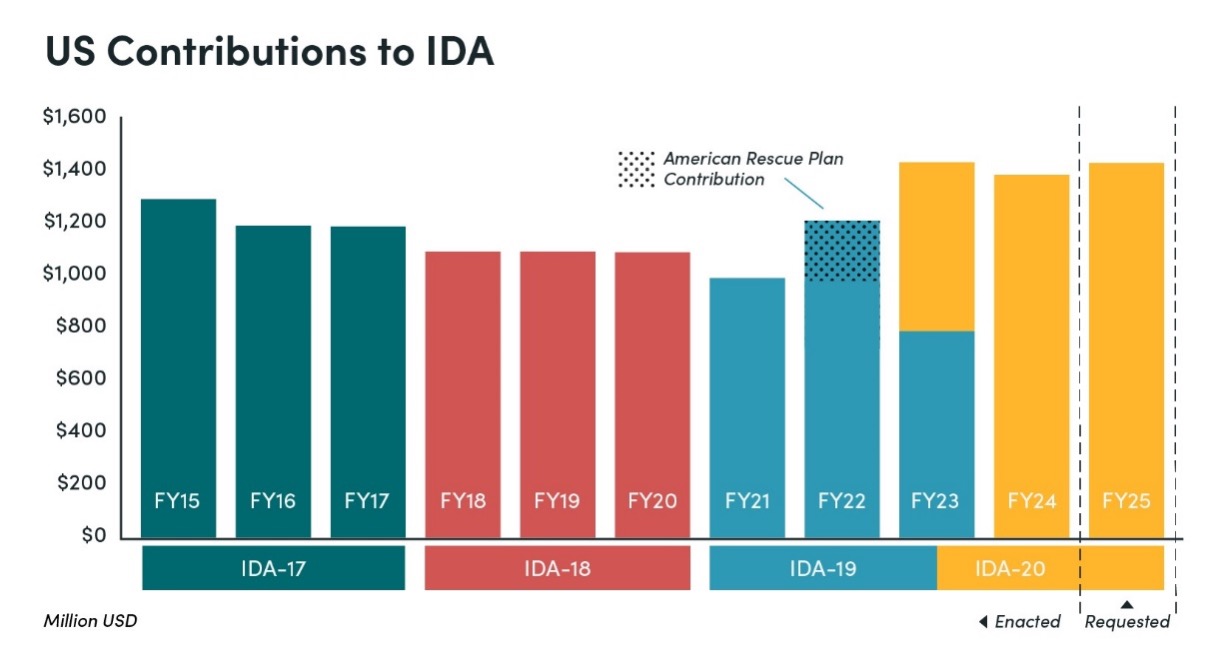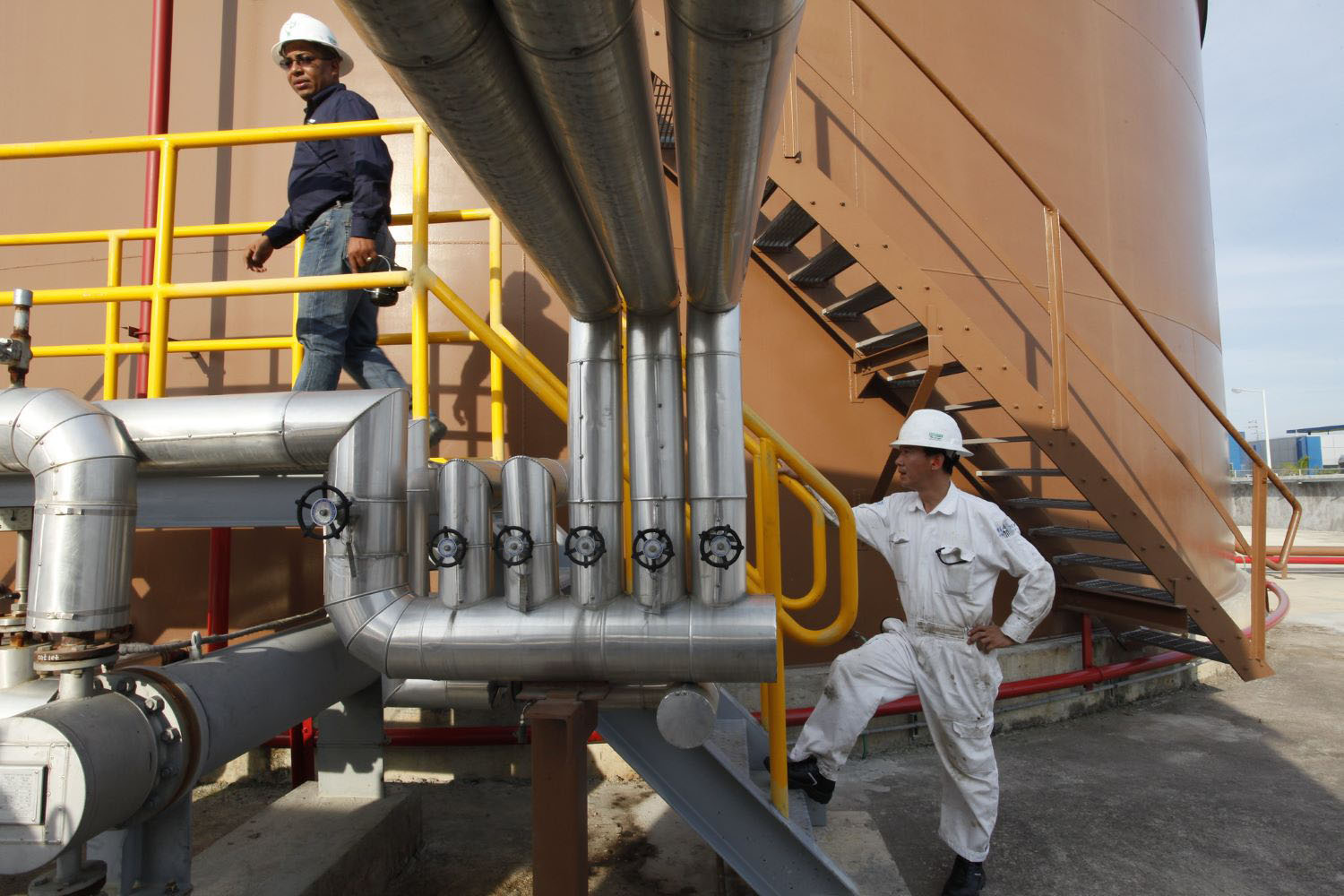Recommended

Blog Post
It has been a week in Latin America. On September 7th, Argentina officially emerged from its ninth default. On September 9th, violent protests erupted in Colombia after a man was killed in police custody. On September 10th, Peru’s president edged closer to being removed by its Congress. Until this week when reported cases in India skyrocketed, Brazil was the reigning COVID-19 capital of the world and its president’s wife and son were under investigation for potential theft of public wages. The region is headed towards the greatest economic crisis in a century, while Mexico’s president reportedly plans lawsuits against five former presidents of the country.
To cap such a volatile week, tomorrow, the countries that own the Inter-American Development Bank (IDB) will likely elect a new president—US citizen Mauricio Claver Carone (aka MCC)—from a field of one. Others have parsed the pros and cons of this outcome given the upcoming US election; here, I look at the priorities and reforms that MCC has floated in the media and reflect on their fit vis a vis the challenges in the region.
1. Make the IDB “a financial heavyweight”
MCC has repeatedly promised to deliver a general capital increase to the IDB. This is unquestionably important given the massive private debt being contracted by governments alongside the fiscal crises underway.
But it wasn’t only COVID-19 that landed the region in its current disaster—governance catastrophes, unsustainable pension and other entitlement burdens, dysfunctional decentralization arrangements, unprofitable quasi-public companies like PEMEX, and profound corruption in public procurement all helped to drive the region’s economies to the brink. All this in addition to very low levels of human capital accumulation and financial inclusion, among other plights.
The role of the IDB then is not mainly or even mostly about the money—it is about its capacity to partner with governments, private sector and civil society to drive the profound reforms needed to get back to a sustainable economy. It would good to hear more about the agenda from this perspective.
Finally, given the upcoming election, MCC’s ability to deliver a capital increase may be at risk, as my colleague Clemence Landers and Karen Mathiasen have pointed out earlier here.
2. Transparency
Transparency as an issue was often mentioned by MCC in the press, mainly referring to the need for representative hiring from all member countries and his plans for greater representation from Central America and the Caribbean in management roles.
Indeed, this is an issue that has been contentious for some time—since 2015, only 55% of management positions were made through merit-based competitive processes.
However, this problem is hardly fixed if MCC also promises quota-based representation of all member countries and the creation of new managerial roles. Instead, the focus should be on merit-based hiring with some equal opportunity arrangements that weight candidates from Central America and the Caribbean (or other underrepresented nationalities) more heavily given similar qualifications.
3. End “China-centrism”
MCC often implies that China pulls the strings at the IDB despite China’s ownership of only 0.004 percent of the IDB (versus the US’s > 30 percent share). Other issues mentioned are shares of procurement awarded to Chinese firms and Chinese government contributions to trust funds.
Here, the solution is to do an independent evaluation of project and corporate procurement at the IDB to determine the extent to which there are signs of unfair treatment, competition or quality issues; a smart idea in any case given that IDB financing was a part of several infrastructure projects involving the infamous Odebrecht firm, investments that resulted in the IDB debarring of their Latin American subsidiaries ex post (see here).
On trust funds, the US should simply provide more trust fund support if they are worried about undue influence—in active trust funds currently under management, the US provides less than a tenth of what China provides ($94 million vs 1 billion, see here).
Finally, it is worth thinking twice about strategy on this issue as these kinds of issues could backfire. Alienating China could push the Chinese further toward the CAF, and strengthen an organization that is a major competitor to the relevance and impact of the IDB. Or worse still, China might avoid multilaterals altogether and strengthen its bilateral interaction with individual countries or groups of countries.
4. Reorganization
MCC has also suggested that the IDB needs to be restructured—and here we may just suggest that he look to the failed restructure at the World Bank under Jim Kim—reorgs take time and effort, and a sense of what it is that you are trying to fix. A recent WSJ editorial claimed that “the Bank has little to show for more than 60 years of lending…it has become a jobs program for friends of the influential.” Both assessments seem grossly unfair to an organization that issues a yearly development effectiveness scorecard of its investments and operations, and basically invented and evaluated the cash transfer-based safety net that helped reduce extreme poverty to almost zero prior to the current crisis. One hopes that MCC will look at the current juncture of events and conclude that there are more important issues at stake, especially if lending volumes must increase dramatically.
Barring the unexpected, MCC will start his new job almost immediately after the IDB election (October 1) and a month prior to the US election. MCC has assured the region that his support from the US will be sustained no matter what the US election outcome, despite a Biden campaign declaration stating the opposite. The US State Department also assured countries that “there would be no reprisals” for not supporting the MCC candidacy; this must be so—an IDB president for the few will never be able to deliver.
In the meantime, we at CGD continue our work related to the region. Next week, CGD’s Liliana Rojas-Suarez will take a look at the upcoming challenges for financial systems in Latin America, and make recommendations for reform. RSVP here.
Disclosure: I worked at the IDB from 1998-2006 and from 2008-2010.
Thanks to Clemence Landers, Scott Morris and Liliana Rojas-Suarez for their review of the blog.
Esta ha sido toda una semana en América Latina. El 7 de septiembre, Argentina oficialmente salió de su noveno default. El 9 de septiembre, estallaron protestas violentas en Colombia tras el asesinato de un hombre bajo custodia policial. El 10 de septiembre, el presidente de Perú estuvo a punto de ser depuesto por el congreso. Brasil era la capital mundial del COVID-19, hasta que los casos en India comenzaron a subir drásticamente, y la esposa y el hijo del presidente están siendo investigados por la posible malversación de salarios públicos. La región se aproxima a la mayor crisis económica en los últimos cien años mientras se reporta que el presidente de México planea demandas contra cinco expresidentes del país.
Para rematar una semana así de volátil, mañana, los países que controlan el Banco Interamericano de Desarrollo (BID) elegirán un nuevo presidente (el ciudadano estadounidense Mauricio Claver Carone, también conocido como MCC) en una votación con un único candidato. Otros autores han analizado los pros y contras de este resultado en función de las elecciones en Estados Unidos. En este blog, evalúo las prioridades y reformas que MCC ha mencionado en los medios y reflexiono sobre su encaje con los desafíos que afronta la región.
1. Convertir el BID en “un peso pesado financiero”
MCC ha prometido en numerosas ocasiones que logrará un aumento del capital del BID. Esto es, sin duda, importante, dado el nivel de deuda privada que los gobiernos están contrayendo y las crisis fiscales que están teniendo lugar. Pero el COVID-19 no ha sido el único factor que ha llevado a la región a esta situación desastrosa. Una gobernanza catastrófica, cargas insostenibles como los sistemas de pensiones y otros programas de subsidios, empresas cuasi-públicas como PEMEX que no generan beneficios y una profunda corrupción en los procesos de adjudicación publica, también han sido claves en este proceso. Además, se suman a estos problemas los bajos niveles de acumulación de capital humano e inclusión financiera, entre otros.
El rol de BID, por tanto, no está principalmente relacionado con el dinero, sino que está vinculado a su capacidad para formar alianzas con los gobiernos, el sector privado y la sociedad civil para impulsar reformas profundas que son necesarias para recuperar la sostenibilidad económica. Sería importante escuchar más acerca de la agenda en este ámbito.
Por último, como mi colega Clemence Landers y Karen Mathiasen apuntan aquí, dadas las elecciones presidenciales de Estados Unidos de noviembre, la capacidad de MCC de lograr un incremento de capital puede estar en riesgo.
2. Transparencia
La transparencia es un tema que MCC menciona a menudo en la prensa, sobre todo refiriéndose a la necesidad de una mayor representatividad en las contrataciones de individuos de todos los países miembros y en relación con sus planes para asegurar una mayor representación de Centroamérica y el Caribe en puestos directivos.
En efecto este es un tema que lleva tiempo siendo polémico (desde 2015, solo el 55% por ciento de las posiciones directivas se asignaron en base a un proceso competitivo y basado en el mérito).
Sin embargo, este problema no se solucionará si MCC también promete una representación de todos los países miembros basada en una cuota y en la creación de nuevas posiciones directivas. En vez de esto, el BID se debería concentrar en asegurar una contratación basada en el mérito dando un mayor peso a candidatos de Centroamérica y el Caribe (u otras nacionalidades infrarrepresentadas) que tengan un nivel de cualificación equivalente.
3. Acabar con el “China-centrismo”
A menudo, MCC insinúa que China es quien maneja los hilos en el BID pese a que solo cuenta con un 0,004 por ciento del capital (Estados Unidos, en comparación tiene más del 30 por ciento). Otros temas que menciona son la proporción de contratos que se asignan a empresas chinas y las contribuciones del gobierno chino a los fondos fiduciarios.
Aquí, la solución es hacer una evaluación independiente de los proyectos y sistemas de adjudicación del BID para determinar hasta qué punto existen signos de un trato injusto o problemas de competencia o calidad. Esto sería una buena idea de cualquier manera ya que la financiación del BID formó parte de varios proyectos que involucraban a la infame Odebrecht. Estas inversiones, de hecho, acabaron provocando que el BID bloqueara algunas de sus filiales latinoamericanas (como se puede ver aquí).
Sobre los fondos fiduciarios, si Estados Unidos está preocupado por que haya influencias inapropiadas, debería simplemente dar un mayor apoyo a estos fondos. Entre los fondos que actualmente maneja el BID, Estados Unidos aporta menos de una décima parte de lo que aporta China (94 millones vs 1 millón, como se puede ver aquí).
Por último, merece la pena pensar dos veces la estrategia sobre este asunto, ya que este tipo de intervenciones pueden tener consecuencias indeseadas. Alienar a China podría empujar al gigante asiático aún más hacia la CAF, fortaleciendo una organización que es el principal competidor en relevancia e impacto del BID. O peor aún, China podría evitar los organismos multilaterales totalmente y reforzar su interacción bilateral con países individuales o grupos de países.
4. Reorganización
MCC también ha sugerido que el BID necesita una reestructuración (aquí simplemente podríamos sugerir que revisara la reestructuración fallida del Banco Mundial bajo el mandato de Jim Kim). Las reorganizaciones toman tiempo y esfuerzo, además requieren una idea sobre qué quieres arreglar. Una editorial reciente del Wall Street Journal argumentaba que “el Banco tiene poco para mostrar tras más de 60 años prestando… se ha convertido en un programa de trabajo para los amigos de la gente influyente.” Ambas evaluaciones son gravemente injustas. El BID es una organización que presenta una revisión anual de la eficacia de sus inversiones y operaciones y que básicamente inventó y evaluó los programas de transferencia de efectivo como red de seguridad que han servido para reducir la pobreza extrema a casi cero antes de la crisis actual. Cabe esperar que MCC revisará la situación actual y concluirá que hay asuntos más importantes en juego, sobre todo si los volúmenes de préstamos deben incrementar de manera dramática.
A no ser que ocurra algo inesperado, MCC comenzará su nuevo trabajo casi inmediatamente despues de la elección del 1 de octubre, un mes antes de las elecciones estadounidenses. MCC ha asegurado a la región que el apoyo que tiene de parte de EEUU se mantendrá independientemente del resultado de la elección, aunque la campaña de Biden ha declarado lo contrario. El Departamento de Estado también ha asegurado a los países que “no habrá represalias” si no apoyan la candidatura de MCC. Y así debe ser, un candidato para la minoría nunca será capaz de cumplir sus objetivos.
Mientras tanto, en CGD continuamos con nuestro trabajo sobre la región. La próxima semana, Liliana Rojas-Suarez revisará los desafíos que afrontan los sistemas financieros de América Latina y dará recomendaciones para lidiar con esta crisis. Pueden ver el evento aquí.
En pos de la transparencia: trabaje en el BID de 1998 a 2006 y de 2008 a 2010.
Gracias a Clemence Landers, Scott Morris y Liliana Rojas-Suarez por revisar este blog.
Disclaimer
CGD blog posts reflect the views of the authors, drawing on prior research and experience in their areas of expertise. CGD is a nonpartisan, independent organization and does not take institutional positions.
Image credit for social media/web: Vinicius Tupinamba/Adobe Stock





